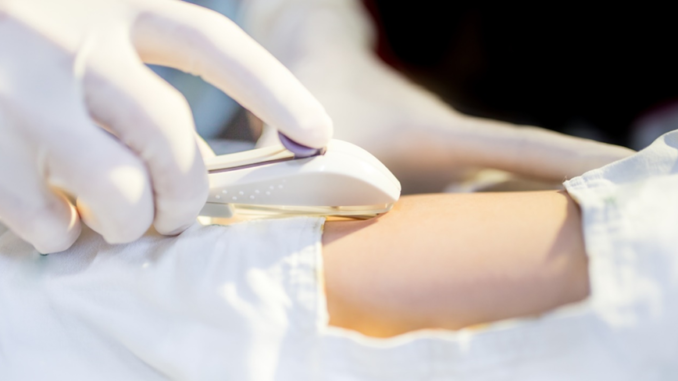
Nexplanon is a contraceptive implant that provides long-term birth control for individuals seeking to prevent pregnancy. It is a small, flexible rod about the size of a matchstick that is inserted under the skin of the upper arm.
Nexplanon releases a progestin hormone called etonogestrel into the bloodstream gradually over time. This hormone works by preventing ovulation, thickening cervical mucus, and thinning the uterine lining, thereby inhibiting fertilization and pregnancy.
Nexplanon is highly effective, with a success rate of over 99% in preventing pregnancy, and it can provide up to three years of continuous contraception without the need for daily administration.
Understanding Nexplanon Side Effects
Before diving into the specifics, it’s essential to understand what side effects are. Side effects are unintended, often undesirable effects of a medication or medical treatment. While Nexplanon is generally well-tolerated by most users, it’s crucial to be aware of potential side effects to make informed decisions about contraceptive choices.
Common Side Effects of Nexplanon
1 Irregular menstrual bleeding:
This is the most frequently reported side effect, with many users experiencing changes in their menstrual cycle, including lighter or heavier bleeding, irregular periods, or no periods at all.
2 Headaches:

Some users may experience headaches or migraines as a side effect of Nexplanon.
3 Breast tenderness:
Changes in breast tenderness or sensitivity may occur, though these symptoms typically resolve on their own over time.
4 Weight gain:
While not experienced by all users, some individuals may notice slight weight gain while using Nexplanon.
Less Common Side Effects
Less frequently reported side effects of Nexplanon include:
1 Mood Changes:
Hormonal changes brought on by Nexplanon may cause anxiety, despair, or mood swings in certain people.
2 Acne:

A tiny proportion of individuals may see an increase in breakouts or acne when using Nexplanon.
3 Nausea:
As a side effect of Nexplanon, some people may have minor nausea or gastrointestinal distress.
Severe or Serious Side Effects:
1 Blood clots:
Nexplanon users may experience extremely uncommon instances of deep vein thrombosis (DVT) or pulmonary embolism (PEE), which can be fatal if left untreated.
2 Severe allergic reactions:
While rare, some people may develop severe allergic responses to Nexplanon, which include symptoms like hives, facial or throat swelling, and trouble breathing.
Managing Nexplanon Side Effects:
1 Give it time:
After a few months of Nexplanon implantation, many side effects, such irregular bleeding or breast discomfort, usually go better on their own as your body becomes used to the hormone.
2 Use over-the-counter pain medicines:
Ibuprofen or acetaminophen, two over-the-counter pain relievers, can help reduce the symptoms of headaches and menstrual cramps.
3 Maintain a healthy lifestyle:

Maintaining hydration, exercising frequently, eating a balanced diet, and controlling stress can all improve general wellbeing and perhaps lessen certain adverse effects.
When To Seek Medical Help
1 Persistent or severe side effects:
It’s critical to speak with a healthcare professional if you have long-lasting or severe side effects that are affecting your everyday activities or general health.
2 Signs of blood clots:
Symptoms of thrombosis If you have any symptoms that could indicate a blood clot, such as breathing difficulties, chest pain, or swelling, pain, or redness in the legs, get medical help right once.
3 Reactions to allergies:
Get emergency medical attention as soon as possible if you have symptoms of a severe allergic reaction, such as breathing difficulties, facial or throat swelling, or hives.
Precautions and Considerations
1 Effectiveness:
One of the most dependable birth control options available, Nexplanon is nearly 99% effective at preventing pregnancy when used as directed.
2 Contraindications:
Not everyone should take Nexplanon, especially if they have a history of blood clots, a certain type of malignancy, or liver problems. Before using Nexplanon, it’s critical to go over your medical history and any possible contraindications with a healthcare professional.
3 Long-term uses:
Nexplanon can be taken out whenever desired, although it offers contraception for up to three years. Take into account your long-term contraceptive requirements and whether Nexplanon fits in with your family planning objectives.
Personal Experiences
Many people have found Nexplanon to be a practical and efficient method of birth control, and many have had excellent experiences with it. But it’s important to keep in mind that every person has a different experience, so what suits one person could not suit another. When thinking about your alternatives for contraception, it’s a good idea to discuss your specific requirements, concerns, and preferences with your healthcare professional.
FAQ’s
What is Nexplanon?
Nexplanon is a small contraceptive implant inserted under the skin of the upper arm to prevent pregnancy.
How does Nexplanon work?
Nexplanon releases a hormone called etonogestrel, which prevents ovulation and thickens cervical mucus to block sperm.
Is Nexplanon effective?
Yes, Nexplanon is over 99% effective at preventing pregnancy.
How long does Nexplanon last?
Nexplanon provides contraception for up to three years.
What are the side effects of Nexplanon?
Common side effects include irregular bleeding, headaches, and breast tenderness.
If You Want To Know More About Nexplanon Counseling
Conclusion:
With its convenient long-term pregnancy prevention, Nexplanon is a very effective method of contraception. While there is a chance of moderate and transient side effects, most users report that they are tolerable and eventually go away. Reproductive health decision-making is aided by knowledge of possible adverse effects and when to consult a doctor. Maintaining open lines of contact with healthcare practitioners guarantees assistance and direction during the contraceptive journey, empowering people to make decisions that are in line with their health.
Leave a Reply